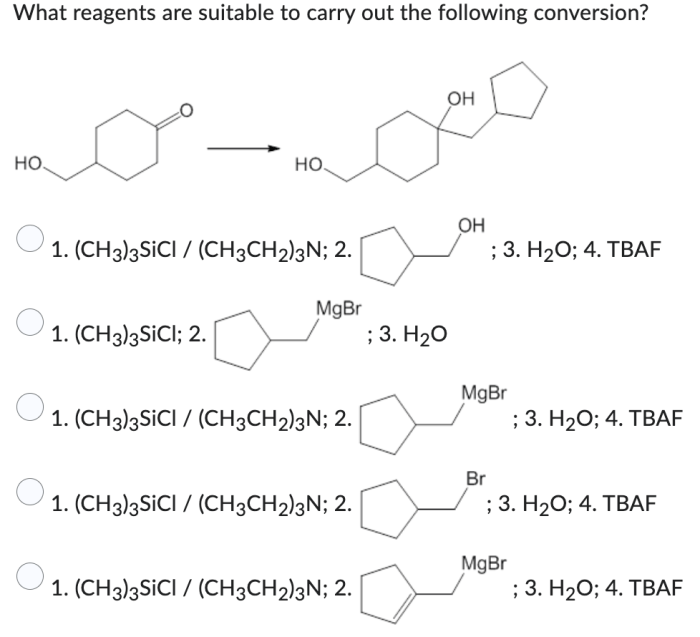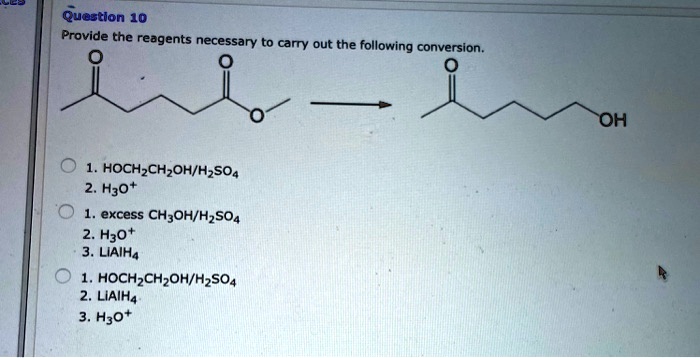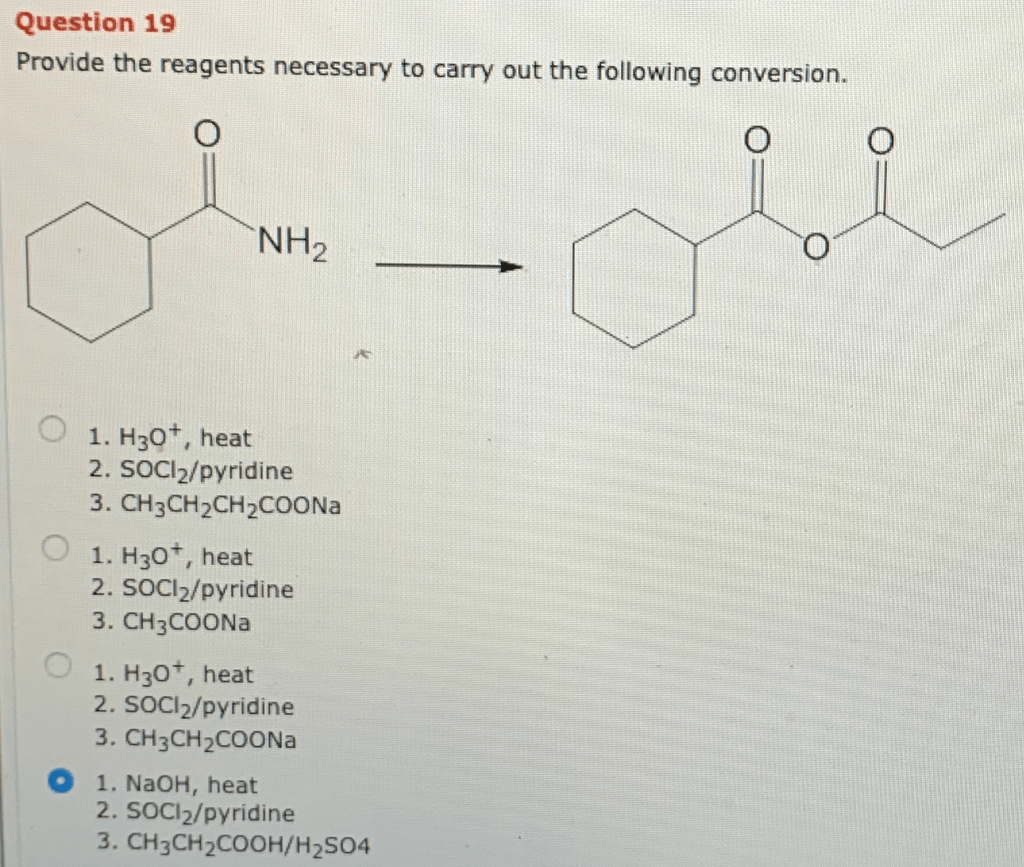What reagents are suitable to carry out the following conversion? This question lies at the heart of chemical synthesis, where the judicious selection of reagents is paramount to achieving efficient and selective transformations. In this comprehensive guide, we delve into the intricacies of reagent selection, exploring the factors that influence their suitability and the strategies for optimizing their choice.
Reagents serve as the workhorses of chemical reactions, providing the necessary functional groups and reactivity to drive desired transformations. Understanding the advantages and disadvantages of different reagents empowers chemists to tailor their synthetic approaches, maximizing yield and minimizing waste.
Reagents for Chemical Conversion

Reagents play a crucial role in chemical conversions by facilitating reactions and enabling the synthesis of desired products. The selection of suitable reagents is essential to achieve efficient and selective conversions.
Factors to consider when selecting reagents include their reactivity, selectivity, availability, cost, and safety. The reaction conditions, substrate structure, and desired product also influence reagent choice.
Suitability of Reagents, What reagents are suitable to carry out the following conversion
Various reagents are available for carrying out chemical conversions. Each reagent has its advantages and disadvantages, depending on the specific reaction and conversion desired.
- Acids: Acids, such as hydrochloric acid (HCl) and sulfuric acid (H2SO4), are commonly used as catalysts and proton donors in various reactions.
- Bases: Bases, such as sodium hydroxide (NaOH) and potassium hydroxide (KOH), are used to deprotonate substrates and generate nucleophiles.
- Oxidizing agents: Oxidizing agents, such as potassium permanganate (KMnO4) and hydrogen peroxide (H2O2), are used to transfer electrons and oxidize substrates.
- Reducing agents: Reducing agents, such as sodium borohydride (NaBH4) and lithium aluminum hydride (LiAlH4), are used to transfer electrons and reduce substrates.
- Organometallic reagents: Organometallic reagents, such as Grignard reagents and organolithium compounds, are used to generate carbon-carbon bonds and functionalize organic molecules.
Factors Affecting Reagent Suitability
The suitability of reagents for a specific conversion depends on several factors:
- Reaction conditions: The reaction temperature, pressure, and solvent can influence the reactivity and selectivity of reagents.
- Substrate structure: The structure of the substrate can affect the accessibility of functional groups and the reactivity of the substrate towards different reagents.
- Selectivity: The selectivity of a reagent refers to its ability to promote a specific reaction pathway over competing pathways.
Optimization of Reagent Selection
Optimizing reagent selection is crucial for efficient chemical conversions. Factors to consider include:
- Cost: The cost of reagents can impact the overall cost of the conversion process.
- Availability: The availability of reagents can affect the feasibility of a conversion on a larger scale.
- Safety: The safety hazards associated with reagents should be carefully considered.
Examples of Reagent Selection
The following table compares the suitability of different reagents for a given conversion:
| Reagent | Advantages | Disadvantages |
|---|---|---|
| HCl | Strong acid, readily available | Corrosive, can cause side reactions |
| NaOH | Strong base, inexpensive | Can react with certain substrates |
| KMnO4 | Powerful oxidizing agent | Can be explosive, toxic |

